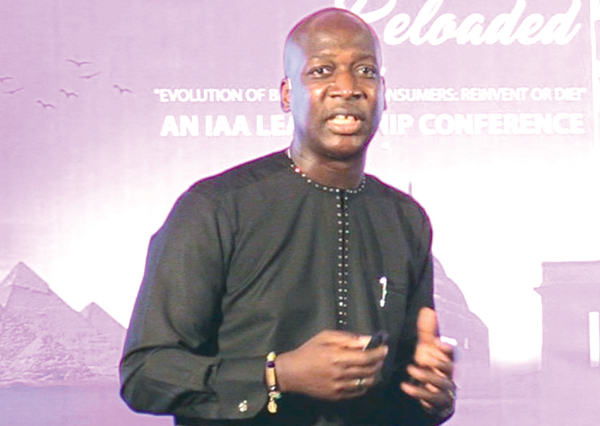
Put informal sector at centre of initiatives — Yaw Nsarkoh
The Executive Vice President of Unilever Ghana and Nigeria, Mr Yaw Nsarkoh, has advised global brands operating in Africa to make persons in the informal sector the focus of initiatives aimed at solving challenges on the continent.
That, he said, was the surest way of making any significant changes to the negative myths and perceptions about Africa.
“Advertising will create any real change in these realities and transform the African narrative when special focus is placed on the informal sector where trends are set and where majority of the population dwell since African reality is not a reality of the African elite,” he said.
IAA Africa Leadership Conference
Mr Nsarkoh made these remarks in a keynote address at the Second Africa Leadership Conference of the International Association of Advertisers (IAA) on the topic: ‘Creativity is from the all life – Africa and Moving the centre’ in Accra yesterday.
On the theme: ‘Evaluation of brands and consumers: Reinvent or die’, Mr Nsarkoh stated that Africa rising could be resilient and dynamic in places and on the streets where brands understood how the people lived, their challenges and how to participate in the important conversation of societies in solving these challenges.
He said advertising companies and brands that insisted on their globalisation experience for what they wanted others to have would die off if they did not understand what the people needed.
“Unless you are willing to engage the people and understand them, you cannot thrive,” he noted.
Defamiliarisation Recounting the success story of some Africans such as the famous Nigerian artist, Olamide Adedeji, and the US-based Ghanaian, Michael Dapaah, popularly known as Big Shaq, Mr Nsarkoh said they had portrayed the life of the people in the society in a more creative way and were now attracting the world’s attention.
He, therefore, urged brands to be creative in accepting things that the continent was not comfortable with and defamiliarise them.
Factors affecting innovation Speaking on the topic: ‘Innovation is not a department; It’s a DNA,’ an independent strategy consultant, Ms Kirsten Leeuw, opined that innovation, which was a catalyst for creativity, was not limited to research and technology developers, rather it was connected to understanding the people.
She, however, stated that there were factors that were affecting innovation, stating that bureaucracy, constant practice and what was perceived as best practices restricted brands and businesses to be innovative.
Ms Leeuw explained that businesses had long held on to certain practices they termed as best and did not allow for new ideas which restricted people to become innovative.
Recommendations
Ms Leeuw, therefore, advised that brands should make ample time for innovation by laying down programmes which would engage people to think and bring up new ideas into their companies.
She said ,for instance, brands could think of philanthropy and venturing into other businesses to provide what other customers needed just as what Toms and FNB Bank had done.
“The bank has developed a branded phone for their agency partners and customers with the customer-based needed application to address their needs.
“Toms gives out a shoe to people in need at every sale, not knowing it was a giant business proposition for the company’s success,” she said.